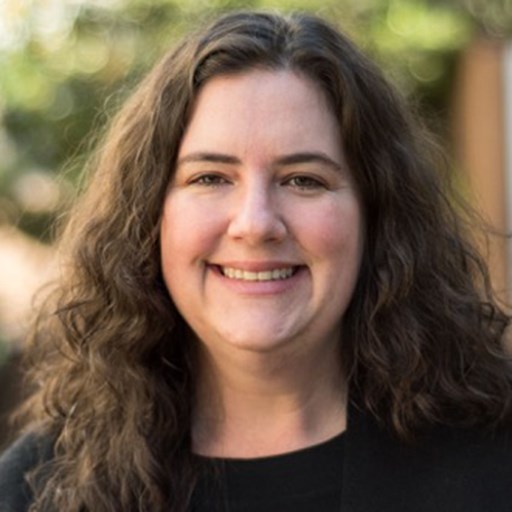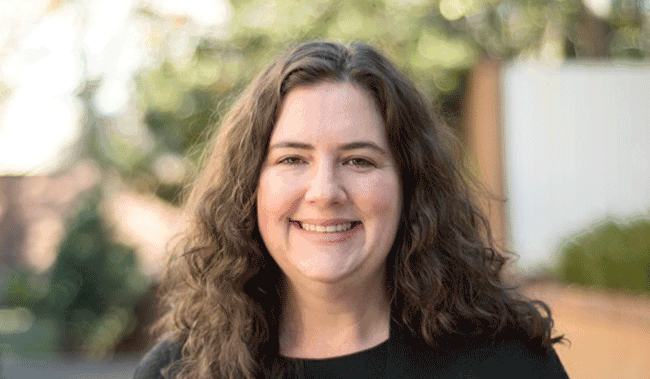
It’s not uncommon for healthcare consultants to burnish their credentials by returning to school to obtain a specialized degree or certification. But when Leslie Krasne, a senior manager with ECG, pursued a master’s degree in clinical health mental counseling after 25 years working in managed care, it wasn’t for the purpose of bolstering her consulting acumen or boosting her earning potential. It was something personal.
Career in Managed Care
Leslie is a problem-solver by nature, which is what drew her to healthcare consulting in the first place. She was working for an ambulatory surgery center (ASC) management company that had hired a consulting firm. She was impressed by what she saw.
“I thought, that seems like a cool job—to travel and help people solve problems, and create tools that help people do their jobs better,” Leslie recalls. “I love working with people, I love training staff. And as a consultant, I especially enjoy helping providers. That’s one thing that is close to my heart.”
A Personal Journey
As a consultant, Leslie expanded her knowledge of managed care contracting and operations and refined her skills as a negotiator. But she also began taking a deeper interest in the human dimension of her work. “I found myself enjoying reading about psychology and how the brain works,” she says, which led to an increasing curiosity about mental health. “I was intrigued with why and how some people heal, and why others don’t,” she says. “The healing path is not linear.”
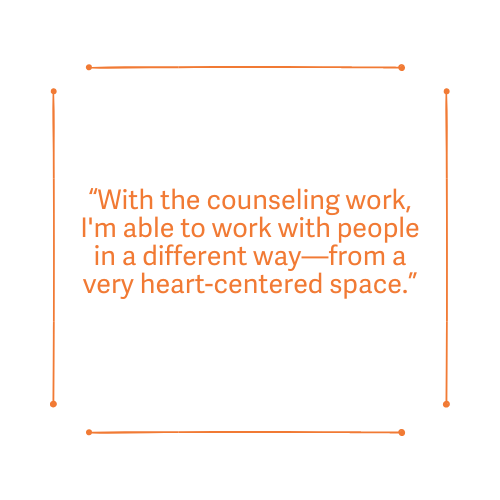
Overlapping Worlds
Leslie enrolled in a graduate program in mental health counseling on a part-time basis while continuing to work as a consultant. It made for a grueling schedule, but keeping one foot in each world revealed unexpected parallels between consulting and therapy.
“They’re different realms with a lot of overlap in terms of working with people, identifying issues, coming up with a plan, and tracking the progress,” Leslie says. “With the counseling work, I’m able to work with people in a different way—from a very heart-centered space. And what I realized was that that’s also needed in the business consulting world. Our work is very relational. We work with people and help them solve problems. That’s the same thing that we do in counseling. The structure is the same, except that we’re dealing with mental health issues versus operational, financial, and strategic issues on the business side.”
Leslie’s experience as a therapist has informed and influenced her consulting work in multiple ways. But there’s one tool in particular that her training has helped her to sharpen. “I think the biggest thing that I learned in the counseling program was to listen,” she says. “That’s something as consultants that can be a challenge, because we’re supposed to be the experts. We do a lot of talking and presenting and telling people how they should do X, Y, and Z. To hone my listening skills, to really hear what the client’s needs are, has been very helpful. It becomes more of a collaborative experience.”
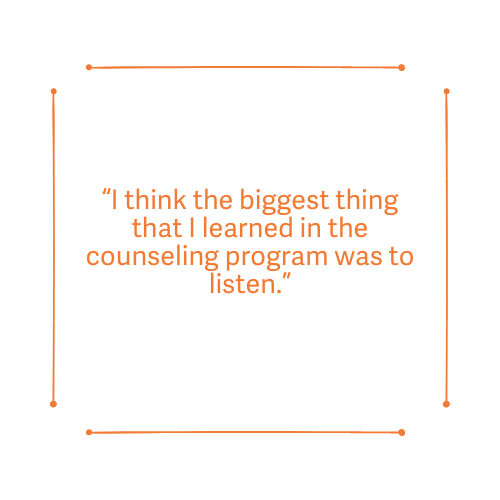
Supporting ECG
Becoming a therapist has helped make Leslie a better-informed, more well-rounded consultant. As a negotiator, her tendency to listen to the needs of all parties facilitates their coming to an agreement, and her ability to empathize with people helps her establish solid, trusting relationships.
And while her focus at ECG has been largely on managed care and ASC-related engagements, her clinical training has made her a valued resource to the firm’s growing behavioral health service line. “I bring a wealth of knowledge on the managed care side combined with the clinical aspect of behavioral health,” she says. “My perspective is as close as the patient, but as wide as the system. I can still work on the business side, but with the lens of a clinician. It gives me a different perspective when it comes to figuring out solutions.”
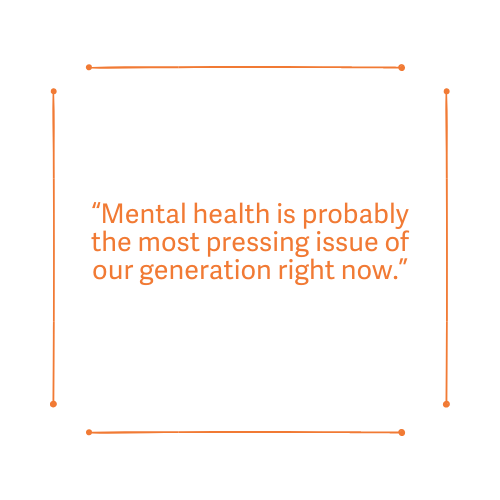
An Industry in Need
That blend of skills is critical at a time when mental health is increasingly in the spotlight. The pandemic has only exacerbated historical issues surrounding behavioral health access and reimbursement. Several major pediatric associations have declared a national emergency in child and adolescent mental health. The industry is scrambling to redefine a care model that has long proved ineffective. And despite the potential benefits offered by new technology and an influx of private equity, meaningful change won’t happen overnight—if it happens at all.
The landscape concerns Leslie. “What I see as a clinician is a great deal of need, she says. “I think everybody feels a sense of urgency, but as providers and communities, we’ve been doing the same things for a long time. Some work, some don’t. It takes communities, individuals, and health systems to come together to have a more well-rounded way to address these problems, and I think that’s happening. It’s just that, due to stigma or financial resources, behavioral health usually falls to the bottom of the stack.”
Leslie does see signs of progress, noting trends within value-based care aimed at paying behavioral health providers more appropriately for care. But just as critical is eliminating the stigma that has traditionally surrounded mental health care. “It’s important to be transparent,” she says. “I think everybody has been touched by this in some way. Mental health is probably the most pressing issue of our generation right now.”

